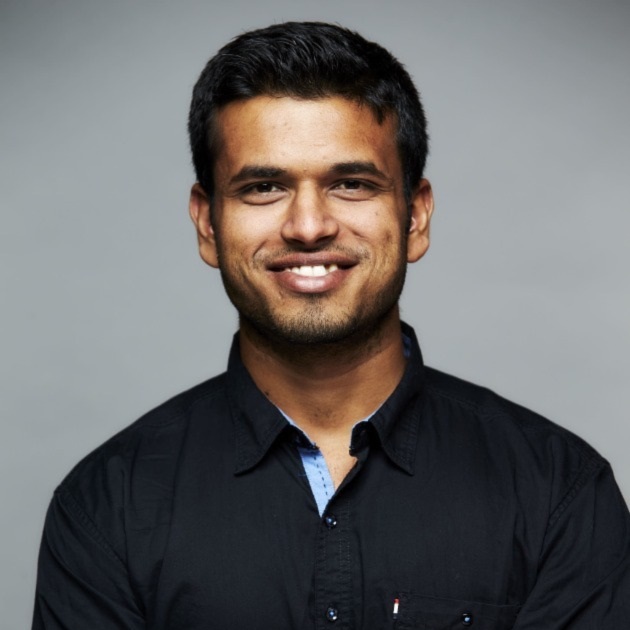After years of battling chronic pain, Leon Jacobson, MBA’22, decided to turn his struggle into a startup. The Naveen Jindal School of Management alumnus recently raised $540,000 to fund Dallas-based Nerveli and change how people recover from pain.

Although Jacobson calls the latest fundraising round “a nice milestone,” he said he has more ambitious plans for a company that has created a mobile application, one that provides users with an empathetic and interactive pain recovery assistant by combining proven medical science, gamified cognitive behavioral therapy and machine learning.
“This really is just the beginning,” he said. “The coolest part is that this has been more than three years in the making.”
Jacobson recalled that when he was getting his MBA at the Jindal School, he got involved with the Institute for Innovation and Entrepreneurship at The University of Texas at Dallas. He was introduced to Dr. Ted Price, Ashbel Smith Professor in the Department of Neuroscience in UT Dallas’ School of Behavioral and Brain Sciences, and director of its Center for Advanced Pain Studies. Jacobson had been dealing with chronic pain and was desperate to find relief.
“Once Ted and I met, we got along instantly,” he said. “We both are really entrepreneurial and want to help as many people as we can that struggle with chronic pain.”
Price eventually became Nerveli’s senior advisor. Together they brought in Dr. Amol Patwardhan to serve as the company’s chief medical officer, and Dr. Desiree Azizoddin as chief science officer.
“This completed our core team,” Jacobson said. “Ted really has an unbelievable ability to put the right people together and form good teams. Having a strong team made up of domain experts with complementary skill sets is something I learned working for David Matthews during my MBA, who is now running the Center for Retail Innovation and Strategy Excellence (RISE).”
The most recent funding round was led by DFW Angels — a new group of investors with roots in TiE Dallas Angels, who have backed winners of the Big Idea Competition, a startup competition presented by the IIE. George Brody, one of the board members at TiE Dallas, is also a member of the Jindal School’s Advisory Council. He and other members of TiE Dallas were instrumental in making this investment, Jacobson said.
“I started building those relationships a couple of years ago when I was helping to run the IIE’s programs,” said Jacobson, who was former assistant director of the IIE. “They were incredibly generous with their time, helping our business- and entrepreneurially minded students, and so it was a real privilege to get investment from them.”
Jacobson pointed out that he’s passionate about strengthening the North Texas entrepreneurial ecosystem.
“To have investors and mentors like George Brody, Trey Bowles, and others who have made such contributions to our ecosystem is just special,” he said.
Looking back on his time as an MBA student, Jacobson fondly recalls having taken classes taught by Dr. Emily Choi, who formerly was academic director of the Jindal School’s Innovation and Entrepreneurship programs, and Jackie Kimzey, MBA’77, a professor of practice in the Jindal School’s Organizations, Strategy and International Management Area. He credits them and Matthews for having played a significant role in Jacobson’s ability to be more comfortable pitching to investors. He also credits former IIE Director Steve Guengerich, and Jindal School faculty members Dr. Dorothee Honhon and Paul Nichols for their mentorship.
“They all allowed me to actually flesh out my business idea throughout the school year, which then allowed me to take the personal pain I experienced, and finally turn it from a negative to a positive,” he said. “I think some of the best entrepreneurs have been able to take a personal negative experience or piece of adversity and use that to create solutions to those challenges they faced. I hope to do the same. During my time, the MBA team as well, led by Lisa Schatz, was so supportive of my entrepreneurial aspirations, even though they differed from most other MBA students’ paths. For all of them, I am truly grateful.”
Nerveli’s model fuses AI, cognitive behavioral therapy and neuroscience — fields that are not usually associated with having much overlap. Jacobson said his MBA background helped him connect those technical, clinical and business worlds.
“Early on I realized the importance of combining my business background with the research and medical side as a great way to form a strong team with complementary skillsets,” he said. “I was fortunate to meet Ted who knew both an amazing pain management physician, as well as an incredibly innovative pain psychologist. We all just have amazing chemistry working together, and it makes it a lot of fun on a daily basis.”
As for Jindal School MBA students who might be sitting where he once sat — thinking about a startup idea, but unsure how to make it real — he offers the following advice:
“If you have an idea that you are passionate about, do whatever it takes to get there,” he said. “Take an unpaid internship at a venture capital firm like I did for example, take entrepreneurial classes, find mentors and soak up as much information as possible during your time as an MBA student. It goes by fast, but if you take advantage of the fact that you are a student, people in the Dallas entrepreneurial community will go out of their way to teach you, invite you to events, and network. I don’t think there is anything more important in business or as an entrepreneur than building meaningful relationships and growing your network.”

Carol Marcus-Rehtmeyer, director of the IIE, said that it has been a pleasure to work with Jacobson and see his continuing success with Nerveli.
“I anticipate many great things to come for Leon and his amazing team!” she exclaimed.





